Oceans
-
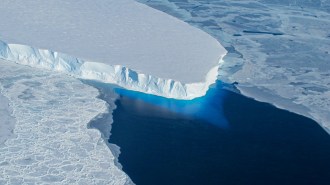 Climate
ClimateWarm water is sneaking underneath the Thwaites Glacier — and rapidly melting it
The salty water, just 3.6 degrees Celsius above the ice’s melting point, is undermining the foundation of the Antarctic glacier.
By Douglas Fox -
 Climate
ClimateWill stashing more CO2 in the ocean help slow climate change?
Research is needed on how ocean carbon removal methods — such as iron fertilization and direct capture — could impact the environment.
-
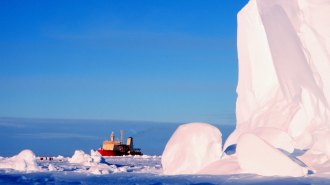 Climate
ClimateA rapid shift in ocean currents could imperil the world’s largest ice shelf
Roughly the size of Spain, the Ross Ice Shelf stabilizes major glaciers along Antarctica’s coast — and is at risk of retreating, a new study finds.
By Douglas Fox -
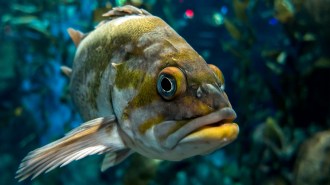 Animals
AnimalsEavesdropping on fish could help us keep better tabs on underwater worlds
Scientists are on a quest to log all the sounds of fish communication. The result could lead to better monitoring of ecosystems and fish behavior.
-
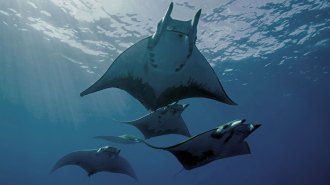 Animals
AnimalsMigratory fish species are in drastic decline, a new UN report details
The most comprehensive tally of how migrating animals are faring looks at more than 1,000 land and aquatic species and aims to find ways to protect them.
-
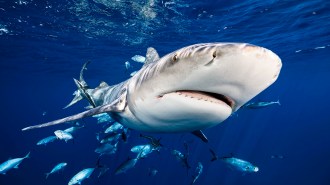 Animals
AnimalsHere’s how many shark bites there were in 2023
The chance of being bitten by a shark is still incredibly slim, according to a new report from the Florida Museum of Natural History.
-
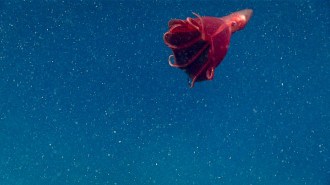 Physics
PhysicsInvisible comet tails of mucus slow sinking flakes of ‘marine snow’
New measurements reveal the gunk that surrounds the particles, an important factor in understanding how the ocean sequesters carbon.
-
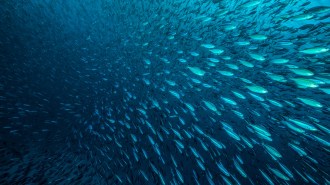 Oceans
OceansOcean heat waves often lurk out of sight
About 1 in 3 marine heat waves occur below the surface, a new study reports, suggesting these harmful events are more common than previously thought.
-
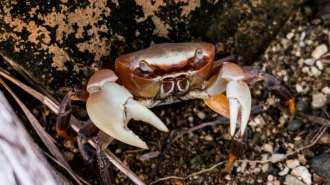 Life
LifeCrabs left the sea not once, but several times, in their evolution
A new study is the most comprehensive analysis yet of the evolution of “true crabs.”
By Amanda Heidt -
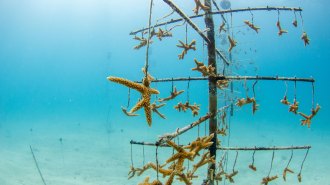 Animals
AnimalsFake fog, ‘re-skinning’ and ‘sea-weeding’ could help coral reefs survive
Coral reefs are in global peril, but scientists around the world are working hard to find ways to help them survive the Anthropocene.
-
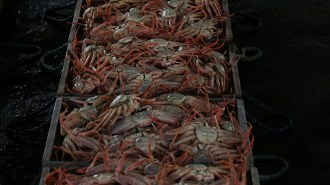 Life
Life10 billion snow crabs have disappeared off the Alaskan coast. Here’s why
In the eastern Bering Sea, the snow crab population plummeted after a marine heat wave in 2018. The crabs may have starved, a new study finds.
By Jude Coleman -
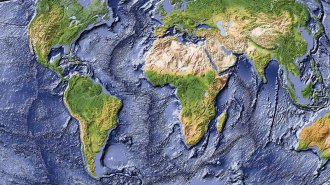 Oceans
Oceans‘The Deepest Map’ explores the thrills — and dangers — of charting the ocean
A new book follows the race to map the seafloor, documenting how it’s done, why and what a clear view of the deep sea could mean for Earth’s future.